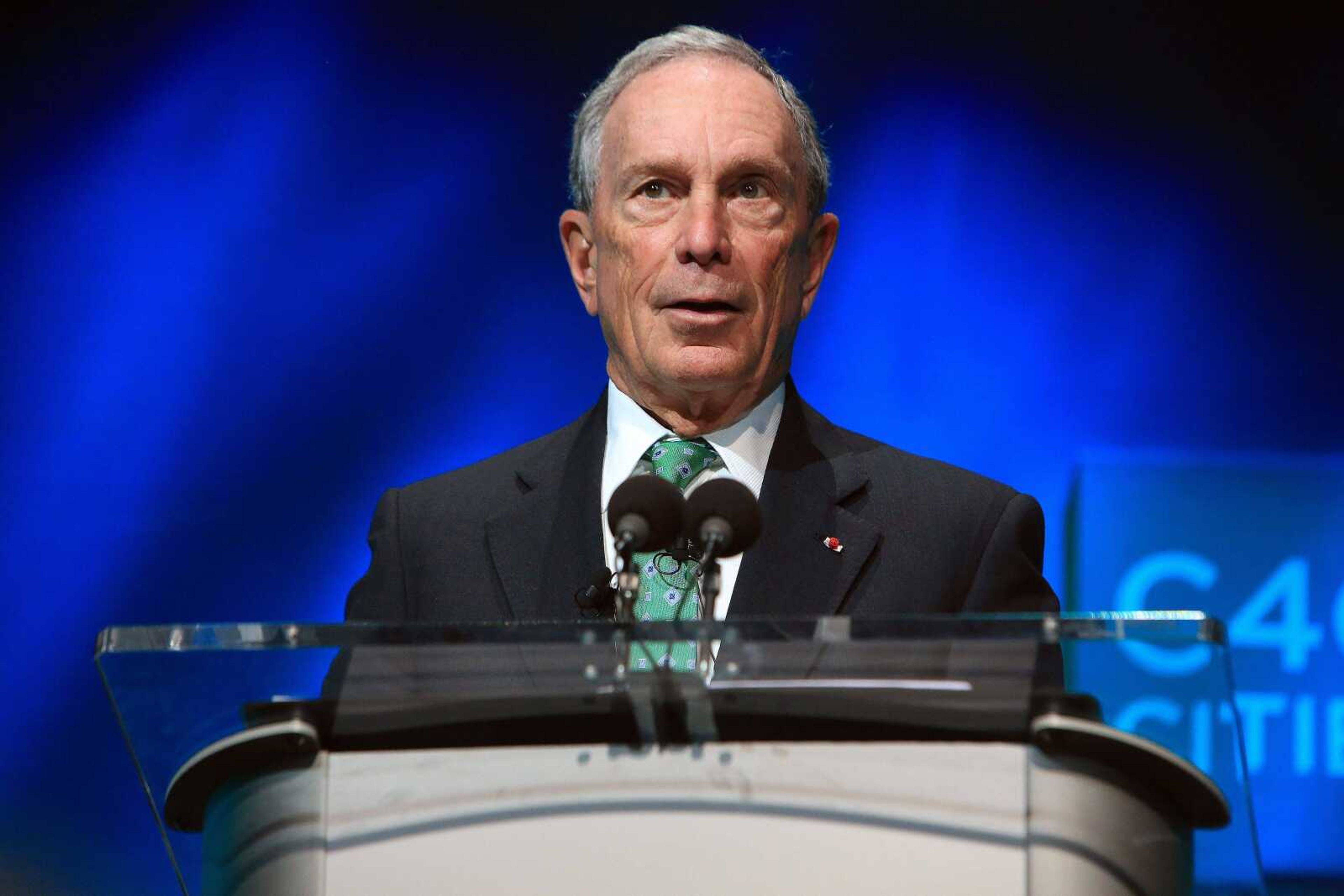Sources: Bloomberg eyes independent White House bid
NEW YORK -- Former New York Mayor Michael Bloomberg is taking early steps toward launching an independent campaign for president, seeing a potential path to the White House amid the rise of Republican Donald Trump and Democrat Bernie Sanders. Bloomberg has retained advisers and plans to conduct a poll after the Feb. ...
NEW YORK -- Former New York Mayor Michael Bloomberg is taking early steps toward launching an independent campaign for president, seeing a potential path to the White House amid the rise of Republican Donald Trump and Democrat Bernie Sanders.
Bloomberg has retained advisers and plans to conduct a poll after the Feb. 9 New Hampshire primary to assess the state of the race and judge whether there is an opening for him to mount an independent campaign, according to three people familiar with his thinking. They spoke on condition of anonymity because they were not authorized to speak publicly about his plans, which were first reported Saturday by The New York Times.
Bloomberg has set a March deadline to decide on whether to enter the race, to ensure his access to the ballot in all 50 states.
The billionaire media executive, who served three terms as mayor of New York, is said to be concerned by Trump's hold on the Republican field and is worried about the effect of Sanders' campaign on Hillary Clinton's bid for the Democratic nomination.
Bloomberg's efforts underscore the unsettled nature of the presidential race a little more than a week before the first round of primary voting. The months-long rise of Sanders and Trump has shaken up the establishment in both parties who've struggled to combat their climb in primary polls.
A Democrat who became a Republican to run for mayor in 2001 and later switched to be an independent, Bloomberg would consider a bid if the general election looked as if it could turn into a contest between Sanders and Trump or Texas Sen. Ted Cruz.
He is not ruling out a bid if Clinton is ahead on the Democratic side, though people familiar with his plans believe it is not particularly likely Bloomberg would challenge Clinton in a general election. But they said Bloomberg has expressed concern about the damage caused by revelations she used a private email address and server while serving as secretary of state, and he fears she may emerge atop the Democratic field as a weakened nominee.
The two New Yorkers have a cordial relationship, people close to them say. They met privately at Bloomberg's offices a few months before Clinton announced her campaign last April, before an event announcing a philanthropic initiative to measure and track data about issues affecting women and girls. Bloomberg has also spoken at events hosted by the Clinton Foundation.
To prepare for a potential run, Bloomberg has also instructed aides to research previous third-party runs and is said to be willing to spend up to $1 billion of his own fortune, estimated to be about $37 billion, to finance his campaign.
Bloomberg, 73, has no personal animus toward Trump -- he believes the real estate developer is "a nice guy," according to one of the people familiar with his plans-- and knows him from New York's social circuit and from dealings with Trump when Bloomberg was mayor. But he strongly disagrees with Trump's political positions, particularly his stance on immigration, the person said.
One of the richest people in the United States, Bloomberg has previously toyed with presidential runs, but concluded ahead of the 2008 and 2012 campaigns he could not win. He delivered a powerful late endorsement of President Barack Obama's re-election effort, though he's been known to criticize the president personally in private conversations.
The founder of the financial news and information provider Bloomberg LP, he was a political novice when he launched an unlikely bid for mayor in 2001.
He was trailing badly in the polls before the 9/11 attacks, but then received the endorsement of the popular then-Mayor Rudy Giuliani. Bloomberg played up his business expertise and campaigned as the candidate best able to help steady New York's economy in the aftermath of the attacks.
He won a narrow victory and was re-elected handily four years later. He then spearheaded a change to the city's charter to allow him to win a third term in 2009. He oversaw a gilded age in the nation's largest city. Manhattan shed its gritty image to become the sparkling star of film and television. Record numbers of tourists arrived. So did young professionals seeking their future. But critics noted the growing gap between the city's rich and poor.
The former mayor is largely a social liberal -- he fought for same-sex marriage in New York and is pro-abortion rights -- and implemented a number of health reforms in New York City, banning smoking in public places and instituting calorie counts on menus.
He has also became arguably the nation's most vocal proponent of gun control, using his fortune to bankroll candidates across the country who clash with the National Rifle Association.
But liberals have found fault with his cozy ties to Wall Street and his unquestioned support for the New York Police Department, which drove down crime during his tenure but engaged in tactics that a federal judge later ruled discriminated against minorities.
Connect with the Southeast Missourian Newsroom:
For corrections to this story or other insights for the editor, click here. To submit a letter to the editor, click here. To learn about the Southeast Missourian’s AI Policy, click here.









